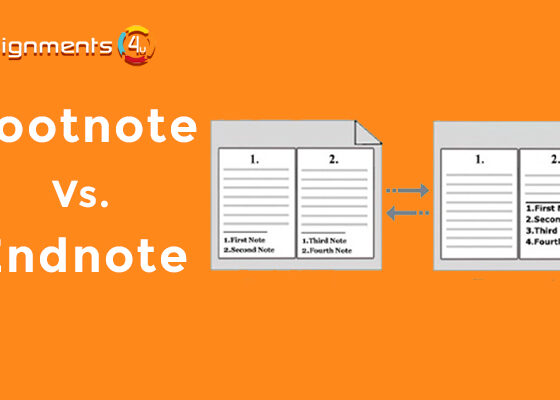How to Write Privacy Policies for Websites
Privacy laws around the world decide that if any personal information is gathered from website visitors, it must be protected. You must post a privacy policy on your site and also on your mobile application if required. A website privacy statement should be a must-have to keep a site protected. This is one of the key reasons why you need a privacy policy.
Out of the 15 must-have pages on your website, a privacy policy in a website is the most crucial requirement. It is considered a statement or a legal document that discloses some ways a party gathers, discloses, uses, or manages a customer’s data. It meets the legal requirements to protect a visitor’s or client’s privacy. The importance of a privacy policy on a website can be understood by its features, which obscure the hidden clauses in the texts that are not acceptable.
Privacy policies for websites are one of the crucial requirements of a website, and that applies to any website, whether small or large and in any domain. There are several third-party services used to enhance online privacy policies that should also be understood in specific contexts. Some of the websites are payment processing tools, advertising plug-ins, and analytics suites, to name a few. This blog will have an elaborate discussion on the reasons why you need a privacy policy on your website.
Is it a Legal Requirement to Have a Privacy Policy on a Website?

If your query is “Do I need a privacy policy on my website?” then the answer is yes. Many countries have introduced privacy laws to protect against the breach of information related to customers. Why You Need a Privacy Policy on Your Website. Here is an insight into some of the specific laws and their requirements.
Privacy Laws in the US
CalOPPA is said to be one of the strictest privacy laws in the US. Any person collecting personal information from the residents of California has to follow this. Its reach is beyond the borders as well. Though CaOlPPA is strict, it is not overly complicated to abide by it. The primary requirement here is having a privacy policy in place. CalOPPA is considered one of the strictest privacy laws in the US. It affects any person who gathers personal information from the residents of California, which also means that its reach goes far beyond the state borders.
Privacy Laws in the EU
On May 25, 2018, the General Data Protection Regulation (GDPR) replaced the existing EU Data Protection Directive that had been enforced since 1995. It demanded that all the companies operating in an EU country have a privacy policy. Similarly, all countries have introduced their own privacy laws for the protection of their client’s data. Do I need a privacy policy if I don’t have a website? The answer is no.
Create a Privacy Policy
Whatever the purpose of your website, having a privacy policy is a must. In any case, where any type of personal information is being gathered, though limited, it is a regulatory requirement across the world to follow such rules and adhere to them. Even if your website does not collect any personal data, you must consider having a privacy policy in place. It will certainly give additional credibility to your website, and it will protect both the users and you from any legal hurdle.
There are numerous benefits to the privacy policy that can be derived in various contexts. You can avail of legal content writing services from India to create a customized privacy policy that best suits your requirements. By availing of our privacy policy services, you can create a custom-tailored privacy policy for your new or existing website.
Top 10 Reasons Why You Need a Privacy Policy on Your Website

Privacy policies are required everywhere. There are various moral or legal reasons for having one.
1. To build trust: You will gain more trust from visitors if you have a privacy policy on your site. The most important moral reason for having a privacy policy is transparency towards your clients’ data. Your customers will get a clear picture of why and how you will process their data. It also makes your client feel more secure. Additionally, by having an easily accessible privacy policy, you can build a safe trust with your clients. The users, if they feel secure, can recommend your website or mobile app to their friends which will increase your business.
You may also Like: Ways to Establish Trust and Credibility for Your Brand
2. It is legally required: Almost all countries all over the world have data privacy laws. As per the law, you must protect and process all the personal information of the clients carefully. You should not pass on your client’s information to other parties. To know how to write an effective privacy policy for your website, do an online search.
3. It is required by third parties: You need to have a privacy policy not only by law but also by companies like Google and Apple. This is also valid for the mobile apps that you plan to submit to Google Play, the App Store, or Play Store. It is equally required if you use third-party services like Google Adsense or Google Analytics to display the ads or collect website data. In many cases, if you don’t have a privacy policy, your mobile app can be suspended or even banned.
4. To save yourself from expensive legal battles: To maintain corporate reputation management, you must focus on multiple strategies. Having a robust privacy policy equally paves the way to support such purposes. There are many examples of lawsuits that have been questioned over privacy policies. Delta Airlines, Snapchat, and Google have suffered because of a few mistakes in their privacy policies in the past.
The EU is also deciding on fines that will be imposed regardless of the location of your business. Whether you have a website online or a mobile app, you must try to protect yourself from potential lawsuits and fines.
5. To gain more profit: By remaining on the safe side and offering the user security, you will automatically increase your assets. According to research, it is shown that if you are honest and upfront with your website visitors, many more will visit your website and do what you want them to do. This means you will earn more money with the help of even the privacy policy you have. That is why its robustness matters the most. If you do not know how to write a privacy policy for your website, hire a company. Learn about journal paper writing services and publication here.
You may Also Like: Grow Your Business Using Prevailing Influencer Marketing Strategies
6. Keep your website private—as much as possible: The privacy policy is a document with personal or private information you collect from your users or visitors, guaranteeing how you will use that information. What constitutes your visitors’ personal information may vary, but most often, it includes their names and email addresses, and even IP addresses and browser cookies. Having a privacy policy across websites and mobile Apps is a necessary element that you can’t ignore. This is the reason places all around the world have specific laws regarding privacy policies on their websites.
7. Bring transparency: When it comes to your client’s information, be as transparent as possible, as it will build trust and create comfort between you and your clients, allowing them to feel at ease. It isn’t very ethical on your part to collect and use their data. It can even lead you to lose your client, or such an act might land you facing some legal consequences.
It will be an even better idea to show your clients how their information will be kept safe and secure from the public. It would help if you took them into confidence to ensure whether it will be optional for them to share that information, how they can opt-out, and the implications of doing so. Transparency is one of the key reasons why you need a privacy policy on your website.
8. Creating reassurance—an imperative factor: With website users becoming increasingly conscious of the importance of being protective about their personal information online, a comprehensive policy becomes imperative for the websites. Thousands of users (even the paranoid ones) do not probably read a privacy policy statement completely.
Still, they find themselves at ease and feel secure knowing that a privacy policy is in place to protect their information. Bloggers and website owners have the wrongful notion that just because they don’t collect any information, they need not set a privacy policy in motion for their business at all. However, they need to have a privacy policy to ensure their visitors don’t collect their information.
9. Protect yourself—the need of the hour: If you want to save yourself from getting sued or any legal implications you may run into, go for the privacy policy that will protect you from the possibility of landing into any of these unwanted troubles. Your privacy policy, being your backbone and stating that you have a privacy policy, does matter the most. So, you need a privacy policy on your website.
10. Be on the safe side: Your privacy policy will bring more visitors to your doorsteps. If you are keen to start a privacy policy, there are simple and quick ways to create one. Your business will grow tenfold by bringing trust into the equation. Your reach will improve, you will feel protected, and you can go ahead in your life with less stress when it comes to your Apps, blogs and websites.
If you are still unsure of creating or effectively implementing a privacy policy, it’s high time you get in touch with SEO Content India, whose professional and skilled team of editors and writers will guide you to your utmost satisfaction. Now you have an answer to your question Who needs a privacy policy?
Conclusion: How to Write Privacy Policies for Websites
Laws and regulations all over the world want websites to have privacy policies in place. From the EU’s new General Data Protection Regulation to California’s broad CalOPPA law, various laws have been introduced for the protection of clients’ information. The many laws share similar essential goals that are centered around the protection as well as proper use of private customer data. They vary in one way or another, but one similar thing is if you own a website or app anywhere around the world, you must comply with the local as well as international jurisdictions and where your website is live.
Know More About Our: Website Content Writing Services in India
You must also be aware of the third-party requirements, such as analytics or any other advertising services. It is always better to check the Terms of Use of all these services to find out what you must do or are expected to do. By having a thorough and easy-to-read privacy policy that is transparent and displays your security, you will have a great business online. If you think that the purpose of a privacy policy is to keep you safe, you are right.
If you are still wondering why you need a privacy policy on your website, let us know.
Some more resources:













These reasons Why You Need a Privacy Policy on your Website are genuine.
Thanks Mary,
You Need a Privacy Policy on your Website.